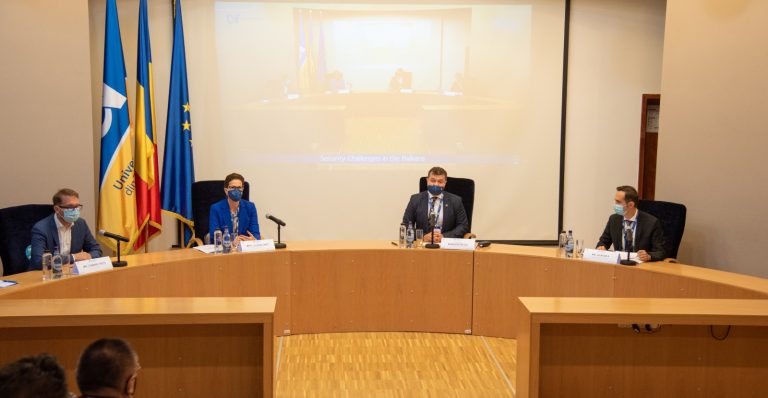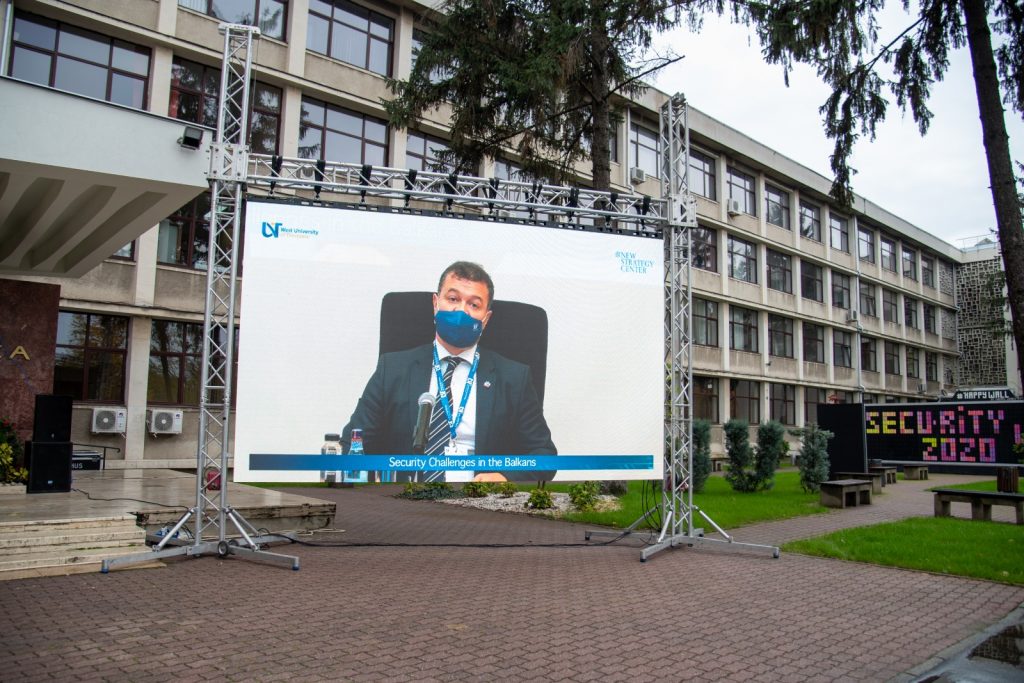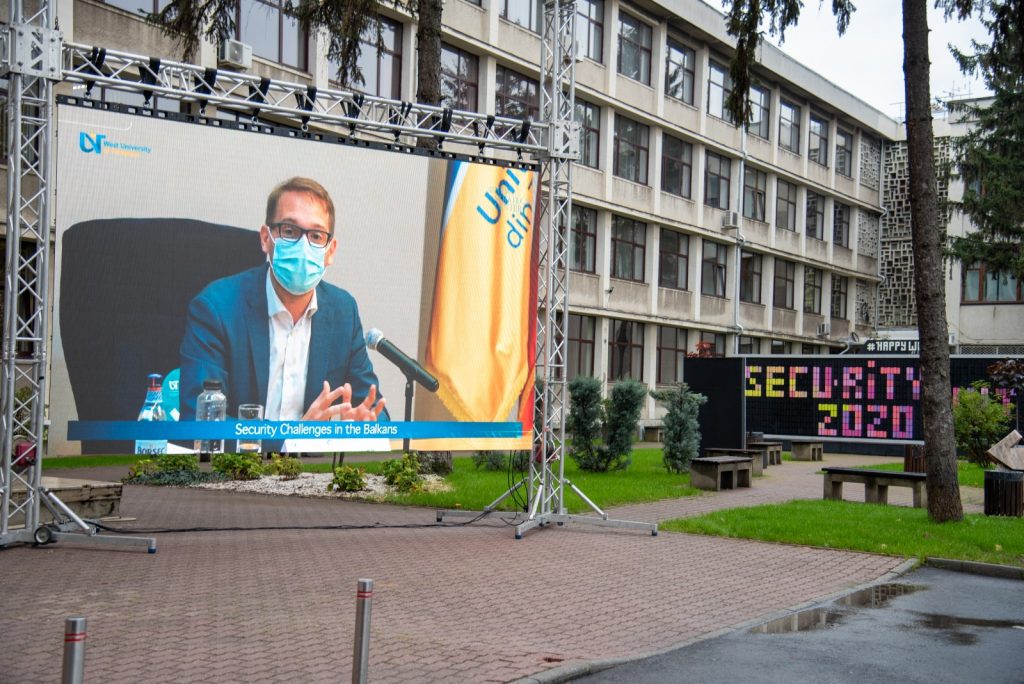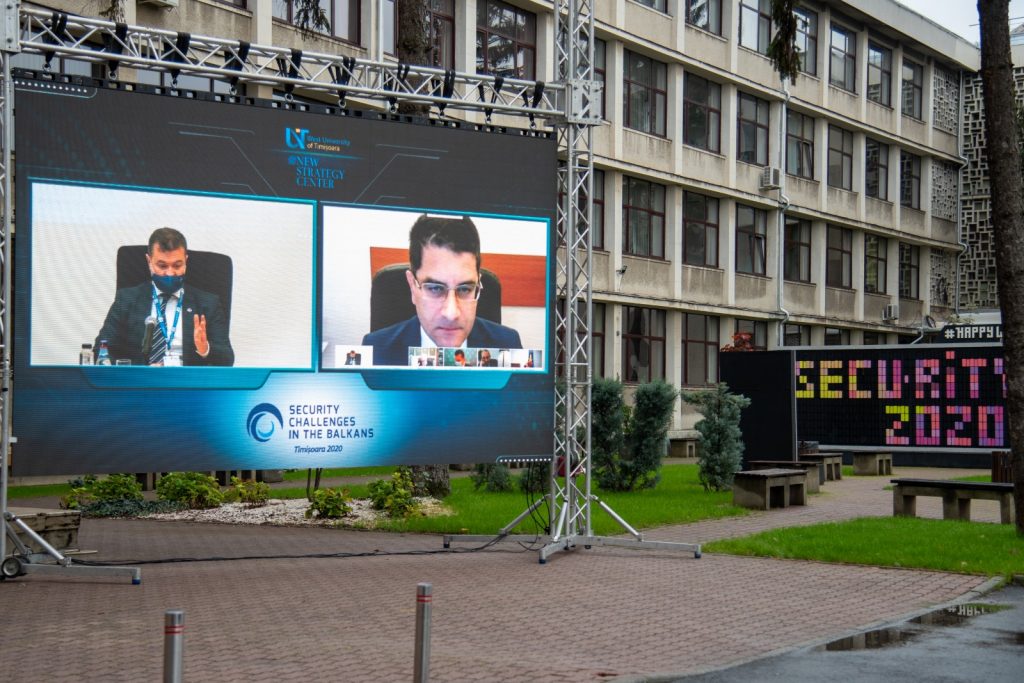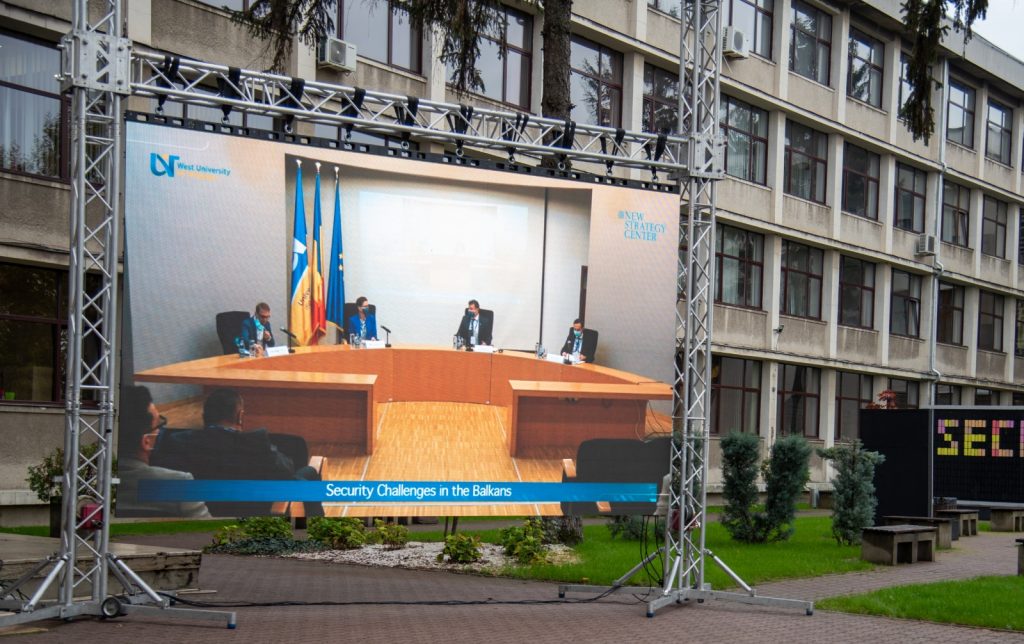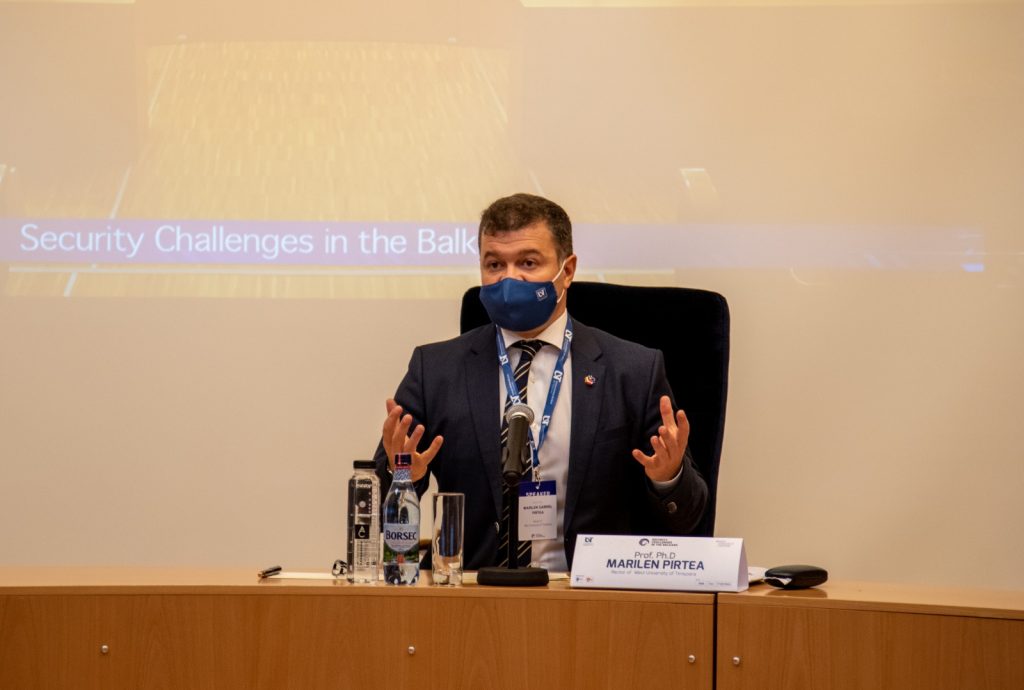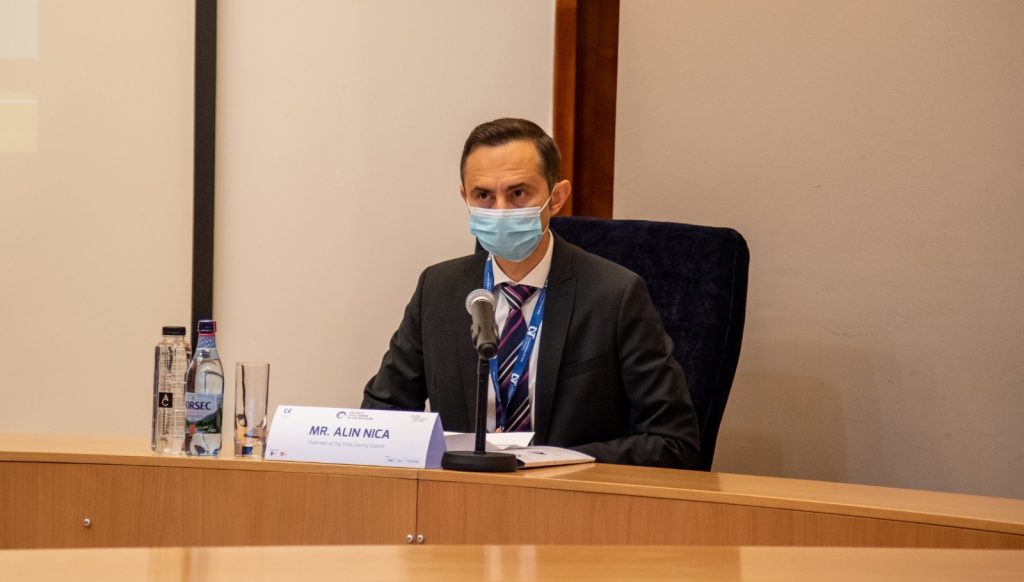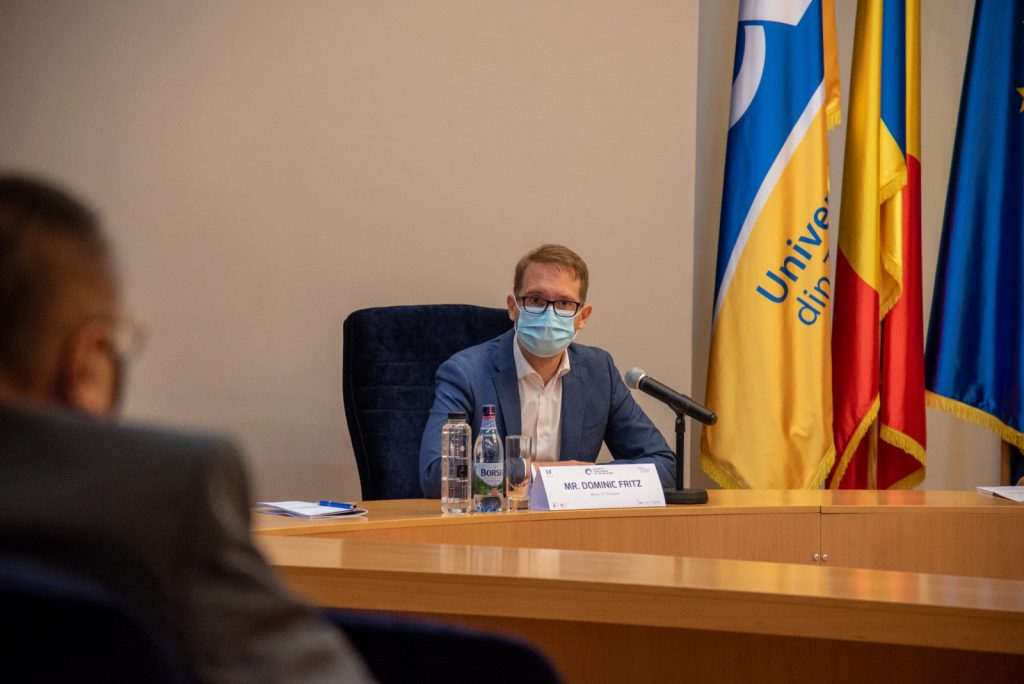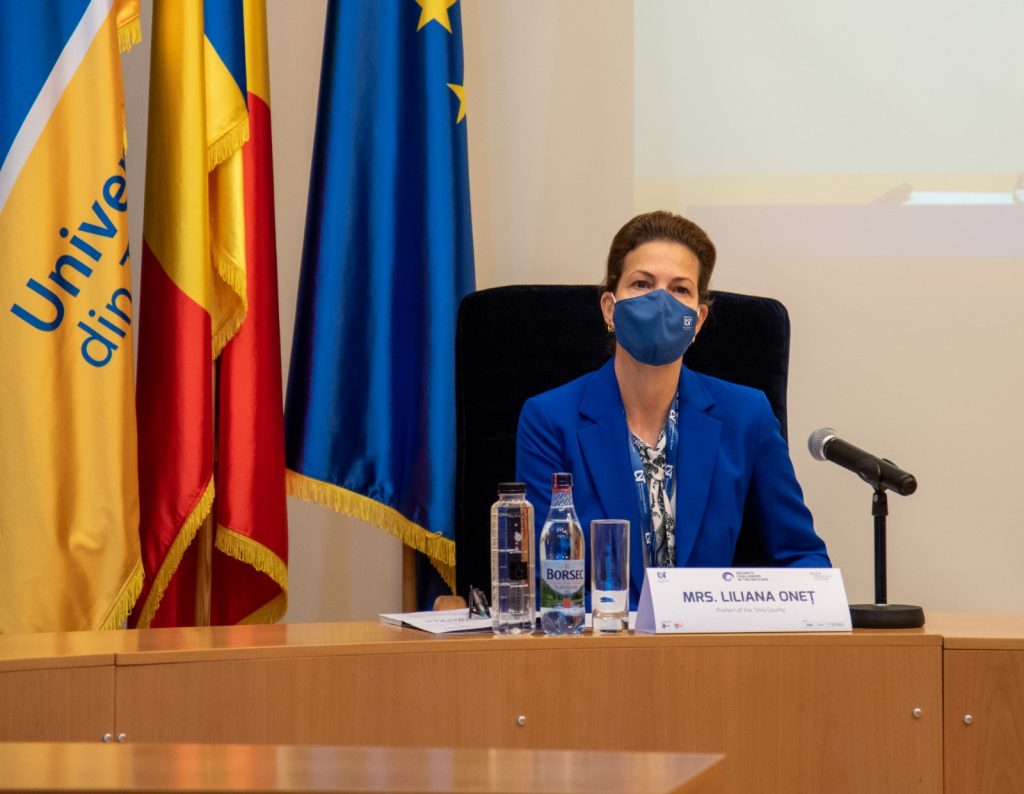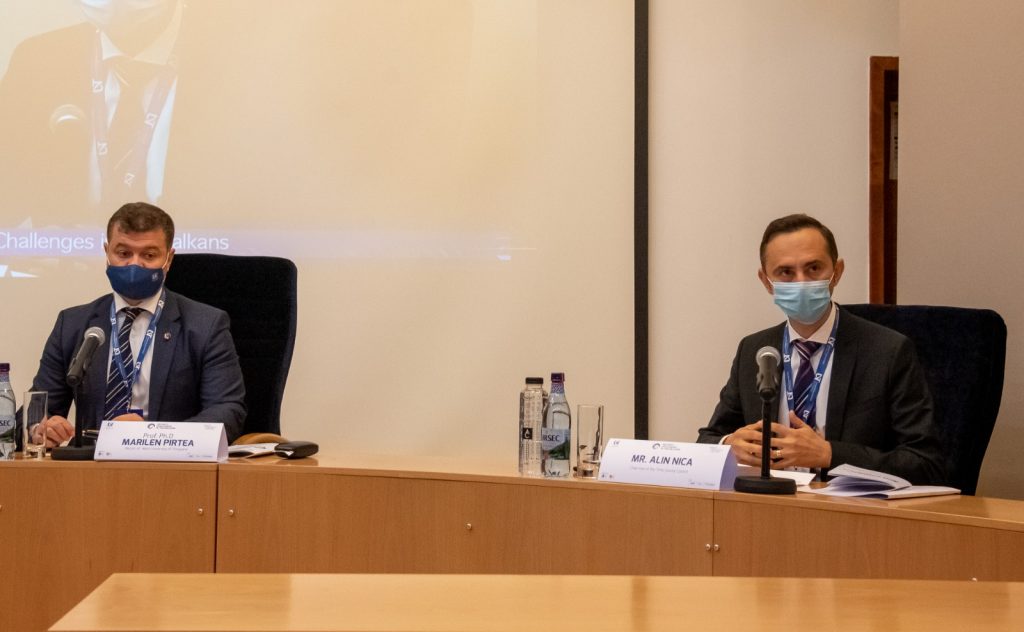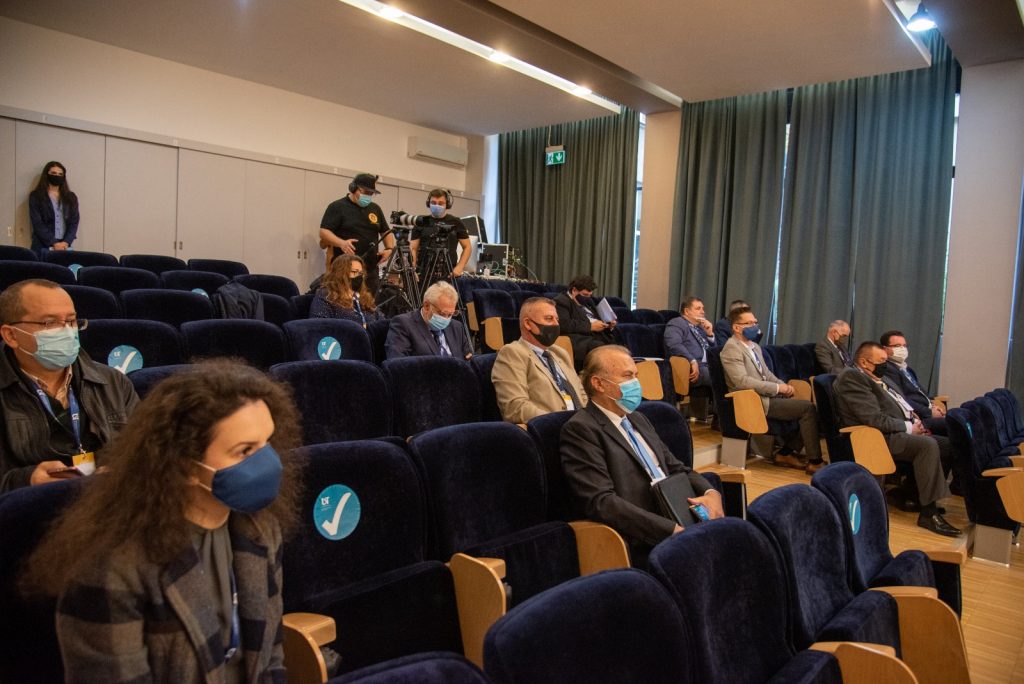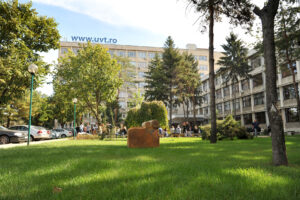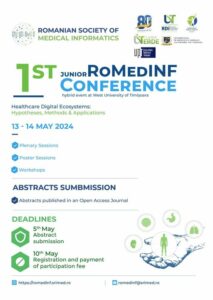The most important international conference in the west of the country, which debates the classic and emerging security challenges in the Balkan region, took place on November 3 at UVT.
In partnership with the New Strategy Center, the Western University of Timișoara organized the fourth edition of "Security Challenges in the Balkans", which was attended by officials and representatives of academic circles from Romania, Italy, the USA, Bulgaria, France, UK, Croatia, Serbia, Poland and Turkey.
Due to health restrictions, the annual conference was held online in a special setting, with a limited number of participants present face-to-face. Diplomats and specialists of the highest rank analyzed the security challenges in the Balkans and beyond in the virtual environment.
The rector of the West University of Timișoara, prof. Dr. Marilen Gabriel Pirtea, gave the opening speech, declaring: "It is no coincidence that this security conference, unique in scope and specificity, today in its fourth edition takes place at UVT. The concern of the academic community in UVT, dedicated to the formation of a modern security culture, which has known several forms over the last years, including through the development of the Master's program in Global Security Studies, led to the accreditation of our university as a provider of educational programs of training in security studies, intended for EU specialists. This year UVT obtained the status of a member of the European Security and Defense College (CESA) of the European Union (EU), within which it will participate, through educational components, in the development of human resources in the EU, as a result of the ongoing strategic projects and the orientation structural towards the development of the security culture in the academic environment.
Our area, multicultural by tradition and European by vocation, the Banat area, this part of European culture, is a strategic pivot in the security projections of the EU and NATO, and we consider vital the involvement of the university environment in promoting all the instruments that can contribute to preserving security in the Balkans ".
At the opening of the event, along with members of the UVT management, was the Mayor of Timișoara, Mr. Dominic Fritz, together with representatives of local authorities such as the new Prefect of Timiș, Mrs. Liliana Oneț and the President of the Timiș County Council, Mr. Alin Nica.
The papers in the first panel were dedicated to the theme of security during the pandemic crisis, papers moderated by Mr. Laurentiu Ștefan, presidential adviser and associate professor at UVT. Mrs. Simona Cojocaru, Secretary of State within the Ministry of National Defense, H.E. Mr. Ambassador Sergiu Celac, HE Mr. Ambassador Lazăr Comănescu and HE Mr. Ambassador George Bologan.
Three other specialist panels followed, dedicated to the place of the Balkans in global geopolitics, threats and vulnerabilities during the pandemic, post-pandemic projections and the dimensions belonging to the hybrid conflict developed through the infodemic.
The Balkan region remains an important space for European security, the challenges facing the area intensifying in recent years, all the more so since the new context of the pandemic crisis intervened. UVT and the New Strategy Center organized this international debate here in Timișoara to emphasize the historical ties of the capital of Banat and to highlight the fact that the Balkans are a vital area for Romania's security.

